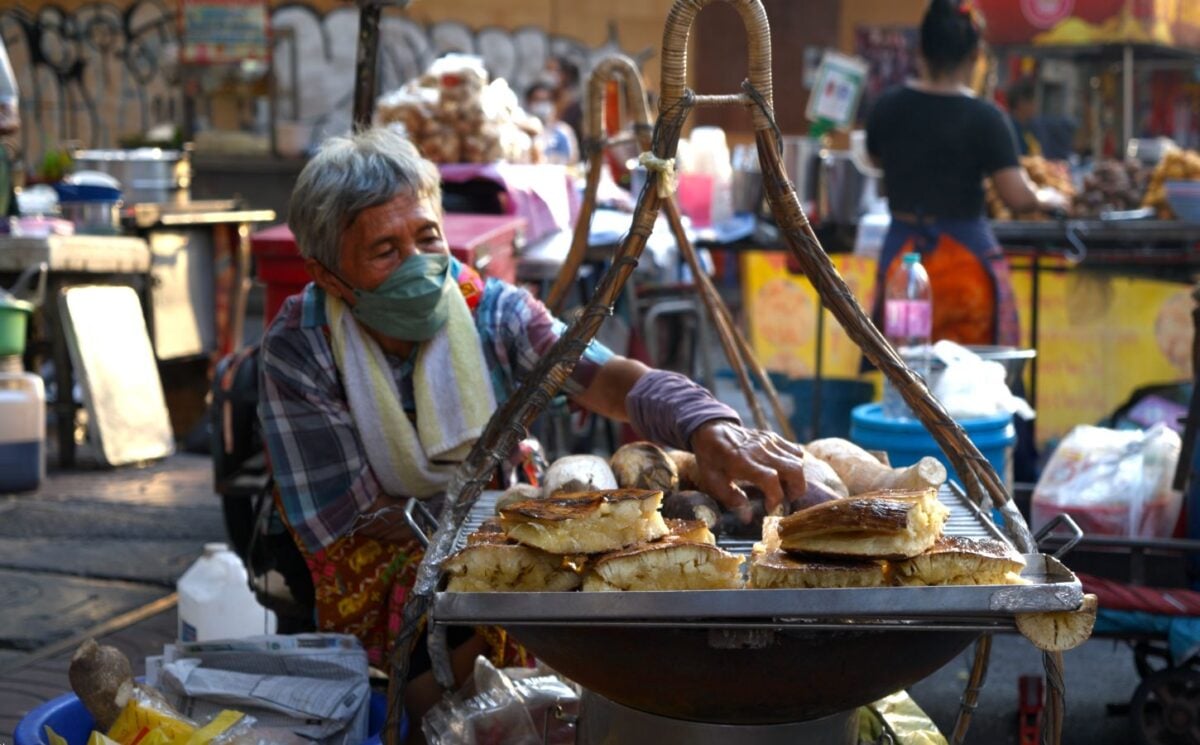A new documentary series titled Culturally Plant-Based explores vegan and vegetarian culinary traditions around the world and will focus on Thailand for its first season.
Street food vlogger Mark Wiens and several Thai celebrity chefs will guide viewers through “an array of culinary and cultural experiences,” including ancient breakfast traditions in the capital city of Bangkok and spiritual vegetarian festivals like Phuket’s annual celebration.
“This isn’t just a food documentary. This series highlights how traditional foods can guide us towards a more sustainable future.” said Culturally Plant-Based director Max Hellier.
“We wanted to diversify the conversation about sustainable food by showcasing ancient plant-based street foods and how they have been quietly thriving in Thailand for generations,” he added. “Especially now as we recognize the importance of sustainable food choices, we believe this fresh perspective is vital.”
According to Climate Cats Studios, which produced the project, Culturally Plant-Based focuses on the human stories behind the food, including street vendors, generational cooks, and community members who keep Thailand’s plant-based culinary traditions alive.
In the trailer for Culturally Plant-Based, Climate Cats producer Joanna Hellier notes that “foods that are now being seen by the rest of the world as these new, sustainable innovations, were actually pioneered in Asia thousands of years ago.”
Culturally Plant-Based will premiere in Bangkok in 2025, with streaming details to come.
Read more: Impossible Foods Founder Explores Turning Cattle Ranches Into Forests In New Documentary
Thailand to expand production and export of vegan foods

In 2019, around eight percent of the total population of Thailand did not eat meat. At the time, this amount was forecast to increase to around 15 percent by 2025.
While last June saw Thailand’s FDA propose a ban on meat and dairy labels for vegetarian alternatives, a few months later the Ministry of Commerce’s Trade Policy and Strategy Office (TPSO) published a roadmap to transform the country into a plant-based hub.
This roadmap included plans for research and technology, investment and marketing, and enhanced production, processing, and expansion. The TPSO also suggested a review of laws and regulations around plant-based products, including the proposed label ban.
TPSO director general Poonpong Naiyanapakorn told The Nation that the roadmap would create domestic and international business opportunities in the coming years.
Read more: Portugal’s ‘Groundbreaking’ Climate Plan Includes Plant-Based Protein Strategy






